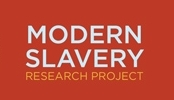TRAINING AND WORKSHOPS
Human trafficking affects over 40 million people worldwide. While trafficking has garnered increased awareness in the media, sensationalized images of sex workers and trafficking have distorted our understanding of the issue and have left many people uninformed about the reality of trafficking. The Modern Slavery Research Project presents workshops based on research in the U.S. and abroad to educate citizens and stakeholders interested in supporting survivors of slavery and trafficking. Our customized, interactive trainings range from hour-long community awareness programs to two-day advanced survivor care for regional anti-trafficking task forces. We can also conduct online trainings for your team remotely using Zoom. Contact us with your organization or community's requests, and we will tailor a training to your needs.
Law Enforcement
We train police officers in effective and culturally-sensitive approaches to identifying potential victims and building a rapport that will assist in investigating cases of human trafficking.Medical Professionals
We train health professionals to identify the physical and clinical warning signs of trafficking, to provide harm reduction strategies to those who might be victims, and to discuss referrals for follow-up services that might aid a victim of trafficking in escaping.Social Workers
We offer workshops for social workers, who may encounter cases of forced sex work, commercially sexually exploited children, or labor trafficking, to provide evidence-based, trauma-informed care and case management to survivors of trafficking and slavery.School Teachers & Counselors
We train counselors and teachers in interactive sessions in local schools to provide the skills necessary identify and assist potential victims of human trafficking among student populations.Student Activists
We train university and high school students to lead their campuses in the fight against human trafficking by providing cutting-edge research on human trafficking and engaging them in opportunities for activism on campus.Community Groups
We raise awareness among community members who often are the first to recognize cases of trafficking and connect citizens with the community resources they need to effectively assist those in need.







